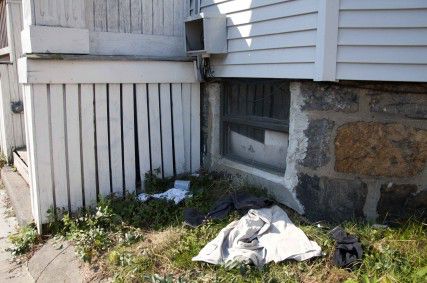Although Boston city inspectors issued more than 2,800 fines for sanitary code violations during the city’s recent student move-in period, students said conditions in their apartments in Allston are habitable.

Between Aug. 31 and Sept. 4, the city’s Inspectional Services Department issued more than 100 abatement orders and 20 fines for housing code violations, even condemning three properties.
“What we’ve noticed is that with the influx of students coming into the city of Boston, we’ve noticed a burden on trash,” said Lisa Timberlake, a spokeswoman for the Inspectional Services Department. “We’ve also received complaints in the past regarding the apartments that students are actually planning on moving into not being up to code.”
Indira Alvarez, the assistant director of the Housing Division at the ISD who was present at some inspections during student move-in, said some of the most common violations included trash on the property, faulty fire alarms, no postings of ownership and bed bugs.
More than 275 pieces of furniture were tagged for bed bugs, according to an ISD report on the inspections.
Allston received 117 house inspections during student turnover, most of which resulted from student complaints, Timberlake said.
Land managers, who are contracted out by landlords, are just as responsible for following city housing and sanitary codes as landlords, she said.
“We believe that the landlords and the management companies are well aware of the laws and regulations in the state of Massachusetts,” Alvarez said. “We hold the landlords responsible. Ignorance is not an excuse. If you are renting an apartment to someone, you should deliver it in decent condition.”
Joshua Krefetz, an Allston-based attorney who deals with landlord-tenant law, said although there were many violations detected in Allston, many of them could have simply been flaws that many people live with every day.
“Just because there was a sanitary code violation found, doesn’t mean the apartment was in horrible condition,” he said.
An example of a violation could be a small rust stain on a sink, he said.
Krefetz said the current codes are extremely comprehensive and require landlords to maintain good living conditions.
“The laws are all in place,” Krefetz said. “The state sanitary code is exhaustive. It is extremely detailed.”
Boston has the oldest housing stock on any major city in the U.S., Krefetz said.
“When you have old houses like that, they are never going to be perfect,” he said. “I don’t really know if there is an epidemic of unresponsive landlords. I think it’s a question of enforcement.”
Many landlords or land-management companies were only issued one or two violations over the move-in period, according to ISD documents, although some had 10 or more.
J.P. Morgan’s property on Haskell Street received 33 violations, leading to the property’s condemnation.
ISD also condemned two other properties on Sachem Street near Mission Hill and Reedsdale Street in Allston. Condemnation hearings for all three properties are scheduled for later in the month.
Boston Mayor Thomas Menino recently suggested changing city ordinances to require rental unit inspections every three years. His plan would require a compilation of landlords in the city who fail inspections often.
In January, an Allston fire that hospitalized several Boston University students sparked a fury of inspections in the student-populated area, where inspectors found more than 40 violations.
Deanna Abbondola, a junior in BU’s School of Education, said when she was moving in on Sept. 1 a police officer approached her to talk with her about various housing codes.
“He said that we should have a pre-rental inspection and make sure that our fire alarms and everything was in check,” Abbondola said in an email. “He also gave us the mayor’s hotline and told us to call if we ever had infestations or anything else wrong with our apartment, and that in that case we would be moved out and hosted in a hotel.”
Abbondola said she would have liked to know these tenants rights last year, when her and her roommate suffered a rodent infestation.
“It would have been nice to have a rental inspection in our previous apartment, because our landlord definitely would have faced some fines and problems,” she said.
Abbondola said her new apartment, so far, has been definitely livable and rodent-free.
Kristina Logacheva, a junior in the College of Arts and Sciences, said she much prefers living in Brighton Avenue in Allston to dorm life, although living conditions are not always perfect.
“Our landlord wasn’t as responsive as I would have liked,” Logacheva said. “He was actually quite difficult to reach. We’d have to call him on his cell and leave messages.”
Logacheva said she has had brushes with rodents, but it is not that big of an issue.
“We have tried to install traps and close holes,” she said. “It’s as rodent-free as possible.”
But ultimately, Logavecha said she was happy in Allston.
“I don’t find it that dodgy or scary to live here,” she said. “I can say with confidence that I prefer living here than I do living in a dorm.”


















































































































